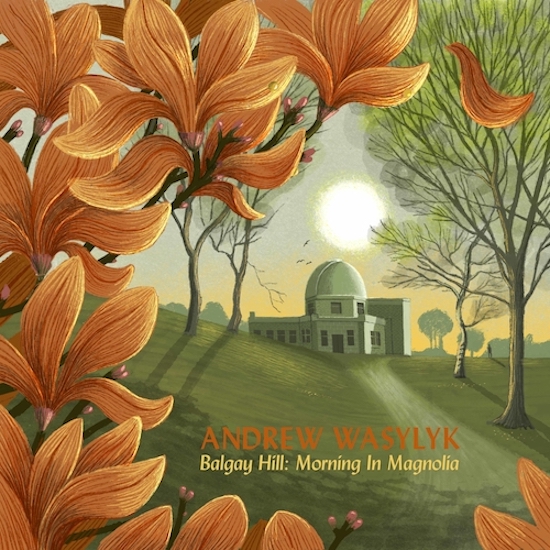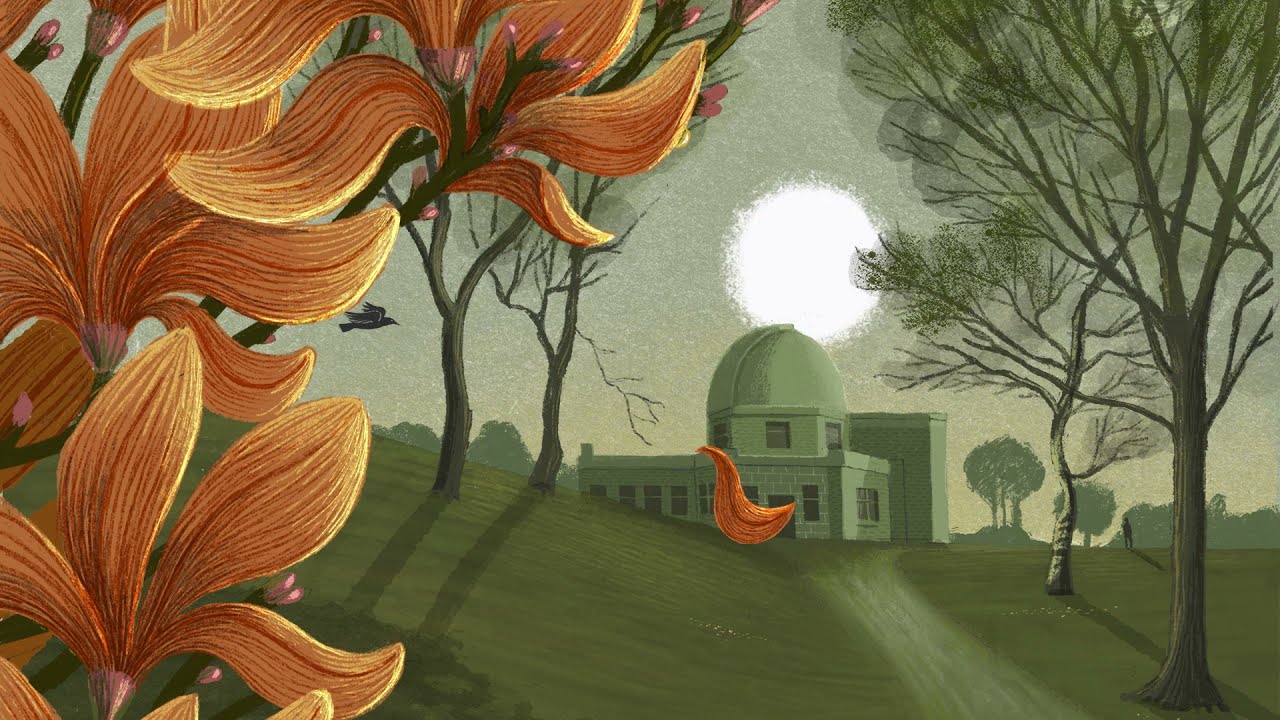Here is the follow up to Wasylyk’s three-album love letter to Dundee, released this time by Clay Pipe Music. Yes, there’s an element of lockdown life here, as the origins of the record spring from the early morning walks Wasylyk took through Dundee’s Balgay Park to ease the anxious tensions of life early in the pandemic. But this is not a collection of songs reflecting on that stuff. It is rather, a set of largely instrumental pieces that flutter amongst the green setting of the park itself. Like the preceding records, it is located. It is about – or perhaps more aptly, from – place.
It is more playful than its predecessors though. There is a sort of wonkiness here that I’m really enjoying. It is the quizzical, amused arch of an eyebrow on seeing a scurrying squirrel. It is a slight spring in the step walking past local flora with a much-loved record playing on headphones. I’m not sure how, but it captures, quite precisely, the feeling I have when I start the walk home from work with good music to listen to. A distinct, inward smile and a welcome isolation. This is what I hear on tracks like ‘Magpie Spring’, my own ambulatory outdoor experience, sounded back at me.
The record is typified by gently chorused, arpeggiated guitar and unobtrusive field recordings setting the backdrop for piano, Rhodes, and brass to play out long-form melodies. Often there are looped or sequenced ostinatos that seem to come from a place of lower fidelity, like in ‘Avril Hydrangeas’. Percussion feels largely electronic but is minimal in its application. This is not beat-driven, but gently supported by warm analogue kick and gentle ride cymbal – save for the closing track that brushes against hip hop as a groove-based piece. As we’ve come to expect from Wasylyk, there is a distinct borrowing from mid-to-late-70s jazz and soundtrack music. He continues to wear this well through his indie credentials though and teases out an atmosphere of near-dark dérive that slowly works its charm on the listener.
The brass is played by Rachel Simpson, and her trumpet and flugelhorn really are a standout feature of the record. Her playing is remarkably expressive, and her use of vibrato is both beautifully executed, and tastefully deployed. There is a tenderness to her playing that hugely benefits the record as it goes along. Her chordal contribution to ‘Smiling School for Calvinists’ is good evidence of this, also visit the muted brilliance of her part in ‘Through the Rose Window’.
I’d love to hear Wasylyk go further still and drag more from the interstices of his music, to really pull at the threads and problematise his very apparent musical gifts, and I dare say he will someday. But for now what we have is a very pretty, slow burning album, that fairly smacks of pastoral walking, quiet alone time, and unhurried movement. This record is for contemplation and for introspection. Take it with you outdoors, let his surroundings blend seamlessly into yours, and find that smile.



